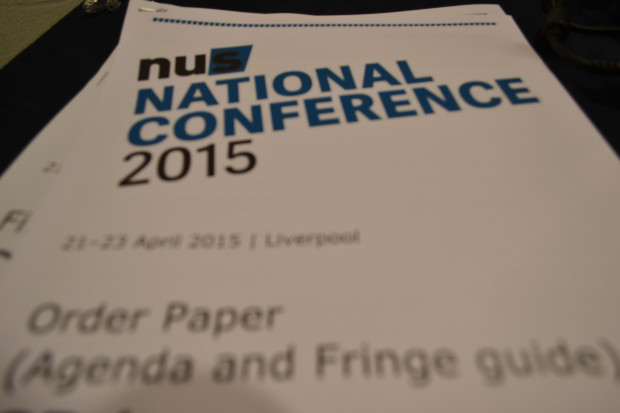
For many Lincoln students, the National Union of Students (NUS) is little more than a media spokesperson and a discount card. As I write this, someone at the conference is stating that “a lot of students are disengaged with the NUS”. So, what is NUS National Conference, and why am I here?
Firstly, it might help if you imagine NUS National Conference as a giant student council. Representatives from all the NUS’ members come to vote on motions that they and others have proposed, and the officers at the top of the NUS report back on what they’ve been doing.
Add to that elections for the next year’s President and Vice-President officers, and the whole thing lasts three days. It started on Tuesday and will go on until around 7pm on Thursday.
That’s important because, just a couple of months ago, you elected ‘NUS delegates’ to represent you here and vote on your behalf (and even if you didn’t vote in the SU elections, they still have a mandate to represent you).
Last year, your NUS delegates – by their own account – voted not to oppose the privatisation of student loans, against free education, and against opposing UKIP. You may hold those principles and you may not – but they’re what you’re being represented by.
Then, as the delegates of SUs across the country vote, those opinions will be taken to national and international media and top-level politicians and policymakers. They’ll tell them that the things voted on here are your issues, concerns, and opinions.
When those people set the agenda and make policy, the effects of that will inevitably fall back onto you – how much you pay back on your student loan, the standards of your housing, your employment after graduation, and more.
On top of that, the NUS will also decide here what to do more research on. This research has then been used to shape the Students’ Union at Lincoln; for example, in terms of its campaigning on housing, and the democratic review that’ll help allocate SU resources for years to come.
You can follow my coverage of the NUS conference on Twitter @thelinc, or keep track of the hashtags #NUSConference and #NUSNC15, and I’ll endeavour to post reports and interviews with the decision makers on this site.

